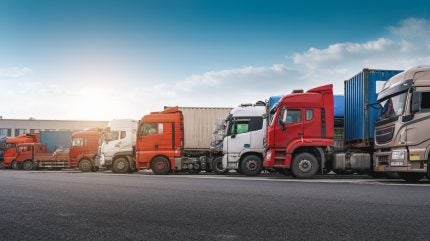
Major truck manufacturers Volvo, Daimler, Paccar, and International Motors have initiated a lawsuit against the US state of California.
The companies are seeking to prevent the enforcement of stringent emissions standards, which were previously declared null by US President Donald Trump, reported Reuters.

Discover B2B Marketing That Performs
Combine business intelligence and editorial excellence to reach engaged professionals across 36 leading media platforms.
The truckmakers, in a complaint filed in federal court, argue that they have been “caught in the crossfire” following Trump’s decision to revoke waivers granted during the former US President Biden administration.
These waivers allowed the state to establish its own emissions regulations, which are stricter than federal standards.
According to the complaint, Trump’s rescission of the US Environmental Protection Agency’s (EPA) approval of California’s plan has created regulatory uncertainty.
The plan aimed to increase sales of zero-emission heavy-duty trucks and minimise nitrogen oxide emissions.
The manufacturers contend that this uncertainty is causing “irreparable harm,” as they are unable to plan their production effectively without clarity on permissible vehicle sales.
The lawsuit specifically targets the enforcement of the Clean Truck Partnership, a 2023 initiative designed to provide the truckmaking industry with the flexibility to meet emissions requirements while supporting California’s emissions reduction goals.
The legal action names the California Air Resources Board and Governor Gavin Newsom as defendants.
As of the latest reports, neither Newsom’s office nor the board has issued a response to the lawsuit.
The Federal Trade Commission concluded an antitrust investigation into the Clean Truck Partnership. The agency announced that the truckmakers involved have agreed to refrain from future anticompetitive agreements with regulators of the state.
This lawsuit comes amidst broader efforts by the Trump administration to limit California’s authority under the federal Clean Air Act.
The administration aims to restrict the state’s ability to set pollution limits that exceed those mandated by federal law.
Additionally, Trump has blocked the state’s plan to phase out the sale of gasoline-only vehicles by 2035. The state is also actively challenging Trump’s actions in court.
Since 1970, the state is said to have received over 100 waivers under the Clean Air Act.
In July, the EPA has proposed to repeal regulations addressing motor vehicles’ contributions to climate change, citing a reinstatement of consumer choice and the potential for reduced living costs due to decreased vehicle prices and transportation expenses for goods.






